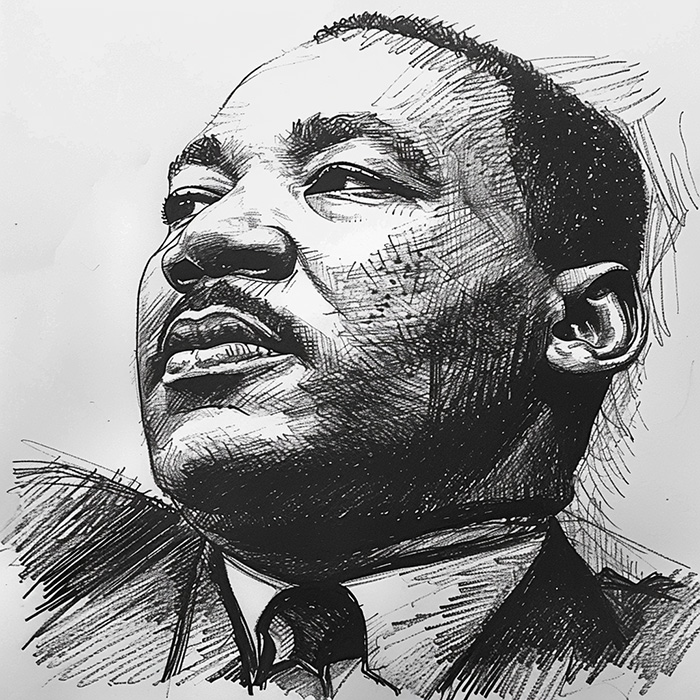
Martin Luther King, Jr., assassinated
On April 4, 1968, the Reverend Dr. Martin Luther King Jr. was assassinated in Memphis, Tennessee. King, the renowned civil rights leader, was in Memphis to support striking African American sanitation workers who were protesting unequal wages and working conditions. He was staying at the Lorraine Motel.
At 6:01 pm, while standing on the second floor balcony of the motel, King was struck by a single bullet fired from a rifle. The shot struck King in the jaw and severed his spinal cord.
He was rushed to St. Joseph’s Hospital, where he was pronounced dead about an hour later at the age of 39.
The shocking murder sparked riots and unrest in over 100 cities across the United States as anguished and angry Americans, especially in the black community, grappled with the devastating loss of the iconic leader who preached non-violence and equality.
President Lyndon B. Johnson called for calm and declared a national day of mourning on April 7th. King’s funeral in Atlanta on April 9th drew tens of thousands of mourners.
After a two-month international manhunt, James Earl Ray, a fugitive from the Missouri State Penitentiary, was arrested in London and charged with King’s murder.
Ray, a white man, was a known racist with links to the segregationist movement. He pled guilty in 1969 and received a 99-year prison sentence.
Ray recanted his confession a few days later and unsuccessfully sought a trial for the rest of his life until his death in 1998.
The King family and others believe Ray did not act alone and that King’s assassination was the result of a conspiracy, potentially involving the U.S. government and the FBI, given Hoover’s extensive wiretapping and harassment of King.
A 1999 civil trial brought by the King family found that government agencies were party to the assassination. However, the legal implications of the verdict remain unclear.





